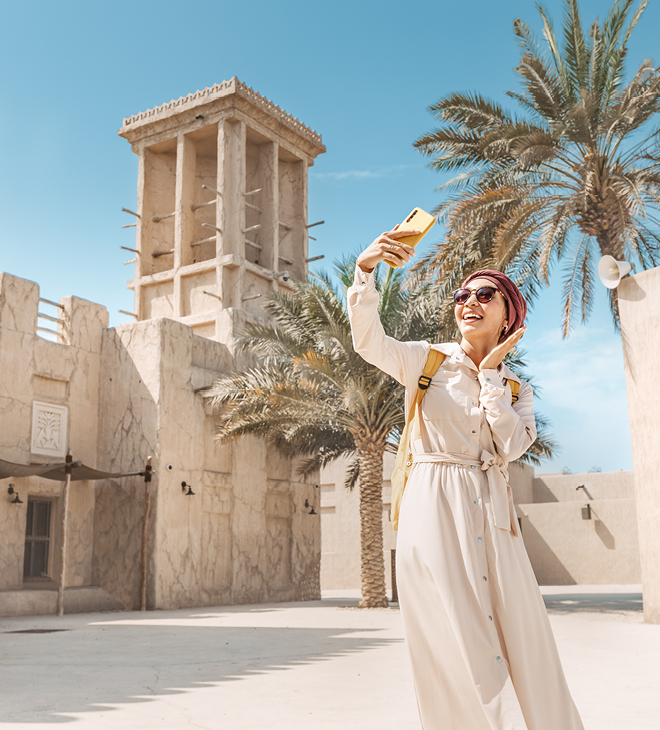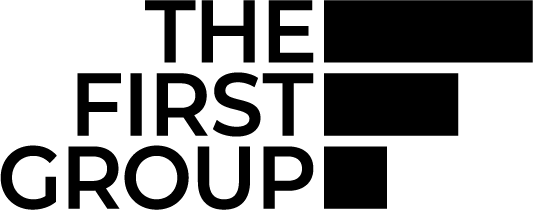Dubai: The cultural hub of the Middle East

Renowned for its glitz and glamour, Dubai is quickly building a reputation as a global hub for art, culture, creativity and innovation.
Known across the world for its towering skyscrapers and luxury lifestyle, Dubai is also increasingly gaining global recognition as the cultural heartbeat of the Middle East.
Beyond its glitzy facade, Dubai boasts a vibrant cultural scene, complete with dozens of museums, art galleries, and annual festivals and cultural events that are increasingly attracting global attention. Its transformation into a cultural hub is testament to the city’s commitment to fostering a diverse and dynamic cultural landscape.
Museums: Showcasing Emirati heritage
Dubai’s museums play a pivotal role in preserving and showcasing the UAE’s heritage and scientific and cultural achievements. The Etihad Museum, for instance, offers a deep dive into the UAE's formation, housing a collection of artifacts, photographs, and interactive exhibits that narrate the country’s journey from a collection of tribal communities to a modern state. The museum itself is an architectural marvel, designed to resemble the UAE constitution.
Another significant institution is the Dubai Museum, located in the Al Fahidi Fort, the oldest existing building in Dubai. This museum provides visitors with insights into the traditional way of life in the Emirate before the mid-20th century oil boom. It features historical exhibits, including weaponry, musical instruments, and recreated traditional homes and souks, offering a vivid portrayal of Dubai’s rich cultural history.
Meanwhile, the iconic Museum of the Future encapsulates Dubai’s ambition, showcasing how science and technology are shaping the future, while seamlessly blending traditional and futuristic themes through multiple exhibitions and interactive displays. This museum has quickly become a symbol of Dubai’s aspirations to be at the forefront of global innovation.
Art galleries: Celebrating Arabic art and culture
Dubai’s art scene continues to flourish, with new galleries opening on a regular basis. Alserkal Avenue, located in the Al Quoz industrial district, is the city’s most prominent art district. It is home to a cluster of galleries, including the Leila Heller Gallery and the Green Art Gallery, which feature contemporary works from both regional and international artists. Alserkal Avenue is more than just a place to view art; it is a cultural hub that hosts workshops, talks, and film screenings, fostering a vibrant community of artists and art enthusiasts.
The Dubai International Financial Centre (DIFC) also contributes significantly to the city’s art landscape. DIFC houses several high-end galleries like Opera Gallery and Christie’s, showcasing works from masters like Picasso and Warhol, as well as emerging artists. The annual Art Dubai fair, held at the DIFC, is a major event in the global art calendar, attracting collectors, curators, and art lovers from around the world.
Festivals and cultural events: Promoting diversity
Dubai’s cultural calendar is packed with festivals and events that celebrate the city’s diversity and creativity. The Dubai International Film Festival (DIFF), one of the most prestigious film festivals in the region, showcases a wide array of films from around the world, providing a platform for filmmakers and promoting cross-cultural dialogue through cinema.
The Emirates Airline Festival of Literature is another marquee event, drawing authors, poets, and thinkers from across the globe. This festival not only promotes a love for literature but also encourages discussions on a wide range of topics, from history and politics to science and technology.
Art Dubai, mentioned earlier, is the leading contemporary art fair in the Middle East. It features a diverse lineup of galleries and artists, along with a comprehensive programme of performances, talks, and workshops. The fair is a key event for the art community, fostering connections and collaborations across the globe.
Dubai’s cultural scene is also marked by traditional events such as the Dubai Shopping Festival and the Dubai Food Festival. These festivals blend entertainment, shopping, and gastronomy, reflecting the city’s cosmopolitan nature and its appeal as a global destination.
Architectural wonders: Building a futuristic metropolis
Dubai’s commitment to culture is also evident in its architectural achievements. Structures like the Burj Khalifa and the Burj Al Arab are iconic symbols of modernity, while traditional buildings like the Jumeirah Mosque and the historical Al Fahidi District provide a glimpse into the city’s rich cultural heritage. The juxtaposition of old and new is a testament to Dubai’s ability to honour its past while embracing the future.
From its world-class museums and thriving art galleries to its vibrant festivals and architectural marvels, Dubai presents a rich tapestry of cultural experiences. The city’s growing reputation as a global hub of creativity is not just about attracting tourists; it’s about fostering a sense of community, celebrating diversity, and positioning itself as a beacon of cultural innovation in the Middle East.



